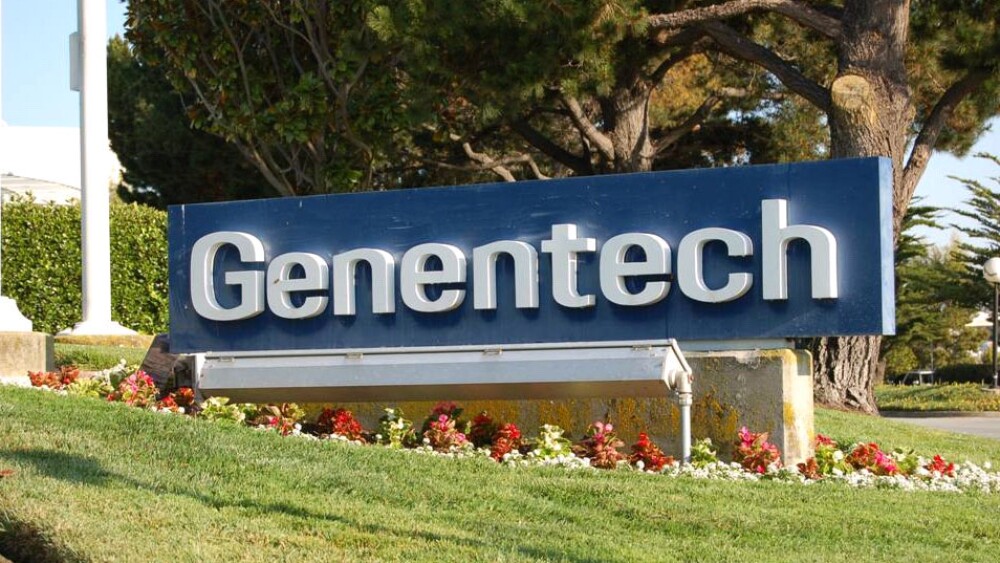September 21, 2016
By Mark Terry, BioSpace.com Breaking News Staff
Genentech and Germany’s BioNTech AG are teaming up to develop and sell messenger RNA (mRNA)-based cancer vaccines.
Under the deal, Genentech’s paying BioNTech $310 million in upfront and near-term milestone payments. They will split all development costs and any potential profits. BioNTech can co-promote specific products that come out of the deal in the U.S. and certain other countries, including Germany and other major European markets.
BioNTech plans to manufacture mRNA cancer vaccines for clinical trials. Genentech plans to manufacture mRNA cancer vaccines for commercial supply.
“We are delighted to collaborate with a leading cancer immunotherapy company such as Genentech,” said Ugur Sahin, BioNTech’s chief executive officer, in a statement. “Supported by its extensive tumor immunology understanding, BioNTech has been building clinical experience with its proprietary mRNA vaccines in a number of cancer types over several years. Combining BioNTech’s broad proprietary capabilities in the design, formulation, manufacturing and clinical testing of individualized neoantigen-based mRNA vaccines with Genentech’s eminent cancer immunotherapy, diagnostic, manufacturing and commercial expertise, will allow us, on a global scale, to drive forward the development of individualized vaccines to the market to treat a broad range of cancers.”
The focus of the partnership is to develop vaccines that target neoantigens using BioNTech’s Individualized Vaccines Against Cancer (IVAC) MUTANOME platform. The platform calls for rapidly sequencing the cancer genome to identify a range of unique mutations that are called neoantigens or neoepitopes. Then an mRNA vaccine can be engineered for the specific neoepitopes found in the patient’s mutanome.
The first development efforts will be on combination studies using IVAC MUTANOME in several different types of cancer.
Late last year, BioNTech inked a collaboration deal with Paris-based Sanofi with a potential value of $1.5 billion. Under that deal, Sanofi paid $60 million for five discovery-stage immunotherapies based on BioNTech’s mRNA platform. Sanofi may pay up to $300 million more per project based on various milestones.
BioNTech published its methodology in Nature last year, which has only upped the pressure on the company. The company’s chief operating officer, Sean Marett, told FierceBiotech, “Since we published our seminal work on this, we’ve noticed a number of companies in the United States who’ve entered this area.”
Still, BioNTech believes it has a two-year headstart on its competition. “That’s the whole reason why we partnered with Genentech,” Marett said. “There’s only so much we can do. We’re a biotech company with the funding that comes with biotech. Genentech allows us to really, really drive the development of this approach on a worldwide basis.”
One of its competitors is Germany-based CureVac, which announced positive results in its Phase IIa trial of CV9103 in prostate cancer, which has led to a Phase IIb trial.
Other competitors include Ionis Pharmaceuticals , Alnylam Pharmaceuticals , Arrowhead Pharmaceuticals and Moderna Therapeutics. The leader out of those is probably Ionis Pharmceuticals, which has 27 candidates in clinical-stage trials, as well as three drugs in Phase III studies. Moderna has about 100 pipeline products and has recently shifted its focus toward vaccines. It’s also raised $450 million in venture capital, but so far only has two drugs in early-stage clinical trials.





